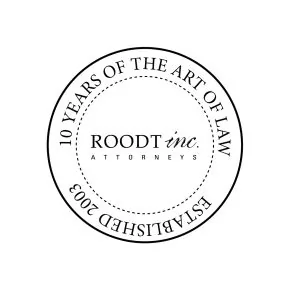The implications of the continued application of chapter 14 of the Companies Act 1973 to companies being wound up on the grounds of insolvency
The general effective date on which the Companies Act 71 of 2008
came into force was 1 May 2011. Consequently, as from that date,
the Companies Act 61 of 1973 was repealed, except in so far as the
transitional provisions contained in schedule 5 of the new Act
provide for the continued application of certain provisions of the
old Act.
Of particular significance are the provisions of sch 5 of the
Companies Act 2008 in relation to the winding-up of companies and
the important distinction in this regard between solvent companies
and insolvent companies.
Item 9(1)-(2) of Sch 5 provides, in effect, that despite the
repeal of the Companies Act 1973, certain specified provisions of
chapter 14 of that Act (which deals with the winding-up of
companies, both solvent and insolvent) continue to apply, except in
relation to solvent companies. Expressed more plainly, chapter 14
of the Companies Act 1973 continues to apply in relation to the
winding up of insolvent. companies.
However, the distinction drawn in Sch 5 of the Companies Act 2008
in terms of which the winding-up of solvent companies is governed
by that Act whilst the winding up of insolvent companies continues
to be regulated by the Companies Act 1973 raises the question as to
what is meant, in this context, by solvent and insolvent.
In Firstrand Bank Ltd v Lodhi 5 Properties Investment CC 2013 (3)
SA 212 (GNP) van der Byl AJ held that where item 9(2) of Sch 5 to
the Companies Act 2008 refers to solvent companies having to be
wound up in terms of the provisions of that Act, it uses the word
solvent in contradistinction, not just to companies that are
factually insolvent (that is to say, those companies whose
liabilities exceed their assets) but also to those that are
commercially insolvent in other words, those companies that are
unable to pay their debts as they fall due.
Consequently, since the coming into force of the Companies Act
2008, where a company is being wound up on the grounds that it is
insolvent, it suffices for the applicant to show that it is
commercially insolvent and it is not necessary to show that it is
factually insolvent.
This interpretation has since been endorsed in Scania Finance
Southern Africa (Pty) Ltd v Thomi-Gee Road Carriers CC 2013 (2) SA
439 (FB) and in Standard Bank of South Africa Ltd v R-Bay Logistics
CC 2013 (2) SA 295 (KZD), both of which rejected the decision to
the contrary in HBT Construction and Plant Hire CC v Uniplant Hire
CC 2012 (5) SA 197 (FB).
Although the Supreme Court of Appeal has yet to speak on this
issue, it therefore seems safe to say that the decision in
Firstrand Bank Ltd v Lodhi 5 Properties Investment CC was the
starting point of an established consensus that is unlikely to be
reversed.
This will come as a considerable relief to an unpaid creditor of a
company who wishes to bring an application for it to be wound up,
for he will not be required to prove that it is factually insolvent
(which may be an impossible task in application proceedings, for he
will usually lack the evidence necessary to prove factual
insolvency), and will be able to succeed by proving commercial
insolvency and to rely on such commercial insolvency to trigger the
deemed inability to pay the debt in question as provided for in
section 345(1) of the Companies Act 1973 by laying before the court
either a statutory demand for payment (as envisaged in section
345(1)(a)) or a nulla bona return (envisaged in section
345(1)(b)).
The directors' personal liability for the company's
debts
The ancillary question of great importance to such a creditor
– namely, the grounds, under the new Companies Act of 2008,
on which he can apply for an order declaring that the company's
directors are personally liable for the company's debts –
has not yet come before the courts, but the answer seems
clear.
Such personal liability for the company's debts was provided
for in section 424(1) of the Companies Act 1973; however, there is
no exact counterpart to this provision in the Companies Act
2008.
It is true that section 22 of the Companies Act 2008 contains an
explicit prohibition on reckless or fraudulent trading, but it does
not go on to say that anyone who was party to such conduct by the
company can be declared personally liable for its debts. (And there
are other provisions of the Act that create a liability for damages
vis-a-vis the company in relation to this and any other
contravention of the Act.) A declaratory provision of personal
liability for the company's debts can now be sought only in
terms of section 20(9) of the Companies Act 2008 which provides
that where there has been an unconscionable abuse of the juristic
personality of a company, the court can declare the company (in
terms of section 20(9)(a)) to be deemed not to be a juristic person
in respect of its liabilities and can make an ancillary order (in
terms of section 20(9)(b) of the Act), which implicitly includes an
order that its directors are personally liable for some or all of
its debts.
The content of this article is intended to provide a general guide to the subject matter. Specialist advice should be sought about your specific circumstances.

